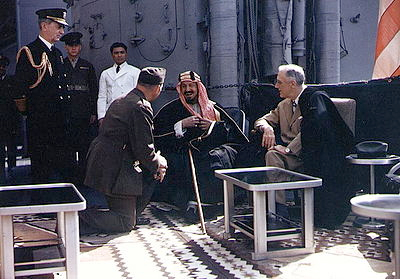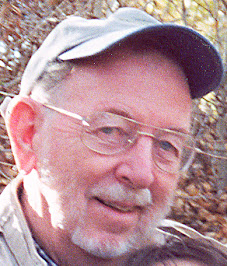Was this nation founded on Christian
principles?
Given what I've said in "about this
blog," it may seem odd that my first post begins with such a question. I
beg for your patience with my sometimes slowed-down and round-about ways. Let
me invoke the big book of Lessons Learned from Sailing – You cannot sail
directly upwind. Accept limitations. Set your course and trim your sails in
accordance with the actual conditions you face.
I have never heard anyone in these parts
actually, seriously ask that question, Was the United States founded on
Christian principles? Everyone seems to think they know the answer. What I hear
is usually some variation on "Can you believe he doesn't know or has
forgotten that this nation was founded on Christian principles?" The
common assumption is that the United States was, is and always should be a
nation founded on, acting out of and in accordance with "Christian
principles."
I ask, which Christian principles? How
interpreted? And how acted on?
Without pretending that this is all there is to say on this subject it, I want to point to two groups of "founders" of our nation, both
coming across the seas (we're sailing again, here), but one coming from Europe
and bringing Christian principles with them and the other coming from Africa
and adopting those Christian principles after they get to the new world (but with a difference, as we'll see). These are not founders in the sense of writing a declaration of independence or drafting a constitution; but their influence on American history has been massive (again, in different ways).
I.
Representing the first group there is one
person and one text I would single out as having extraordinary influence over
the whole course of American history: John Winthrop, Governor of the
Massachusetts Bay Colony, and his 1630 sermon "A Model of Christian
Charity," delivered (probably) on the good ship Arbella as his group of
Puritans embarked on their journey to "New England." http://history.hanover.edu/texts/winthmod.html
The sermon is a remarkable intellectual
achievement, worth reading in its entirety – while imagining Winthrop's
Puritans aboard the Arbella at sea listening intently as their leader "set
the course" for them, explaining what they must do to carry out their
intent to establish a new society in a perilous new world. Parts of the sermon
have been quoted by almost every American president. It was for many years
required reading in schools. Here's a key passage, toward the end of the
sermon, outlining the rewards to come – if the group is successful in adhering
to Winthrop's "model” of Christianity:
The Lord will be our God, and delight to dwell among us, as His own
people, and will command a blessing upon us in all our ways, so that we shall
see much more of His wisdom, power, goodness and truth, than formerly we have
been acquainted with. We shall find that the God of Israel is among us, when
ten of us shall be able to resist a thousand of our enemies; when He shall make
us a praise and glory that men shall say of succeeding plantations, "may
the Lord make it like that of New England." For we must consider that we shall be as a city upon a hill. The eyes of
all people are upon us.
It has been the “city upon a
hill” metaphor that has been found especially useful by presidential
speechwriters and all bloviators expounding on Our Great Country. The metaphor
comes from Jesus’s Sermon on the Mount. But note that nothing else in this passage
echoes Jesus’s sermon. Instead of love for enemies, we have victory in war over
enemies (with God on our side, commanding blessings on us).
The theme is one of victorious domination by force. Is this a
Christian principle?
In Winthrop’s “Model of Christian Charity” sermon we see perhaps the
first formulation of what has come to be known as American Exceptionalism (you
could google it). The idea that the U.S. is a God-blessed exceptional “city
upon a hill” unfolds across a spectrum that includes some positives, birthplace
of democracy and all men created equal (or progress toward all people equal),
for examples; and extends to our being exempt from being judged by
international law, justified in throwing our military weight across the globe
in thousands of bases in foreign countries, and having the right to assassinate
anyone we judge to be an enemy anywhere in the world.
II.
If we have any consciousness of those other “founders” of our
nation, hearing Winthrop use the word “plantations” has to ring with some
significance. The Puritan founders did not have slaves (only indentured
servants), but they certainly came to the new world (already “occupied” by
native peoples) intending to be Owners and Masters. The last paragraph of
Winthrop’s sermon emphasizes possession:
If the Puritan founders are faithful to their God, “the Lord God may bless us
in the land whither we go to possess it.” If unfaithful, “we shall surely
perish out of the good land whither we pass over this vast sea to possess it.”
Our African founders sailed across that vast sea in somewhat
different circumstances. They did not come to "possess" the land. They were possessions. Slaves. Of course I call them “founders” not in the usual
sense but in recognition that their labor made it possible for all those
plantations to survive and flourish and created a large part of the wealth of
the country.
They largely adopted Christianity, but with a difference, seeing salvation as liberation, deliverance from
slavery. They identified with the Judaeo part of the Judaeo-Christian
tradition, with the people of Israel escaping their Egyptian bondage. You could
say that they invented the first version of “liberation theology.” So their
theme was freedom, not domination. But they also took the message of the New Testament seriously. Here’s Frederick Douglass: “I love the pure, peaceable, and
impartial Christianity of Christ: I therefore hate the corrupt, slaveholding,
women-whipping, cradle-plundering, partial and hypocritical Christianity of the
land.”
Adopting that “pure, peaceable, and impartial Christianity” and
making it the foundation of a mass movement for liberation had to wait until
Martin Luther King, Jr. arrived on the national scene. King enlisted Gandhi,
Thoreau, and Tolstoy in the civil rights campaign, but his theme of nonviolence
was rooted first of all in the Sermon on the Mount, on the commandment of love
even for enemies: “I say unto you, Love your enemies, bless them that curse
you, do good to them that hate you, and pray for them which despitefully use
you, and persecute you.”
King’s influence is now diminished, but he brought to the forefront
of national political consciousness and put into practice on a mass basis for
the first time in American history the Christian principle of love for enemies,
of nonviolence.
III.
I want to be fair to John Winthrop. I do think his sermon has on
balance had negative effects on American history, but that’s a matter of what
people over generations chose to make of his “model,” and not necessarily what
John Winthrop himself would have liked to see happen. It’s not that Winthrop
didn’t subscribe to the Sermon on the Mount. Here’s a beautiful passage from
his sermon showing (to me) his good side:
“The only way to avoid this shipwreck [of the
wrath of God on an unfaithful people], and to provide for our posterity, is to
follow the counsel of Micah, to do justly, to love mercy, to walk humbly with our
God. For this end, we must be knit together, in this work, as one man. We must
entertain each other in brotherly affection. We must be willing to abridge
ourselves of our superfluities, for the supply of others’ necessities. We must
uphold a familiar commerce together in all meekness, gentleness, patience and
liberality. We must delight in each other; make others’ conditions our own;
rejoice together, mourn together, labor and suffer together, always having
before our eyes our commission and community in the work, as members of the
same body. So shall we keep the unity of the spirit in the bond of peace.”
IV.
Nevertheless. Although John Winthrop earnestly promoted the
Christian principle of love among his own people, the Puritans he led, he saw
them as being entitled and justified to take possession of land that was not
theirs and to dominate and exploit that land and its native peoples for their
own purposes. And that idea, taking off and taking over, the refusal to accept
limitations, always wanting – and deserving – more and more, is what has had
too strong influence on American history.
Which is why I think all this is relevant for a blog titled “The Slowdown
Dirty Truth.” True? Well, your call.


